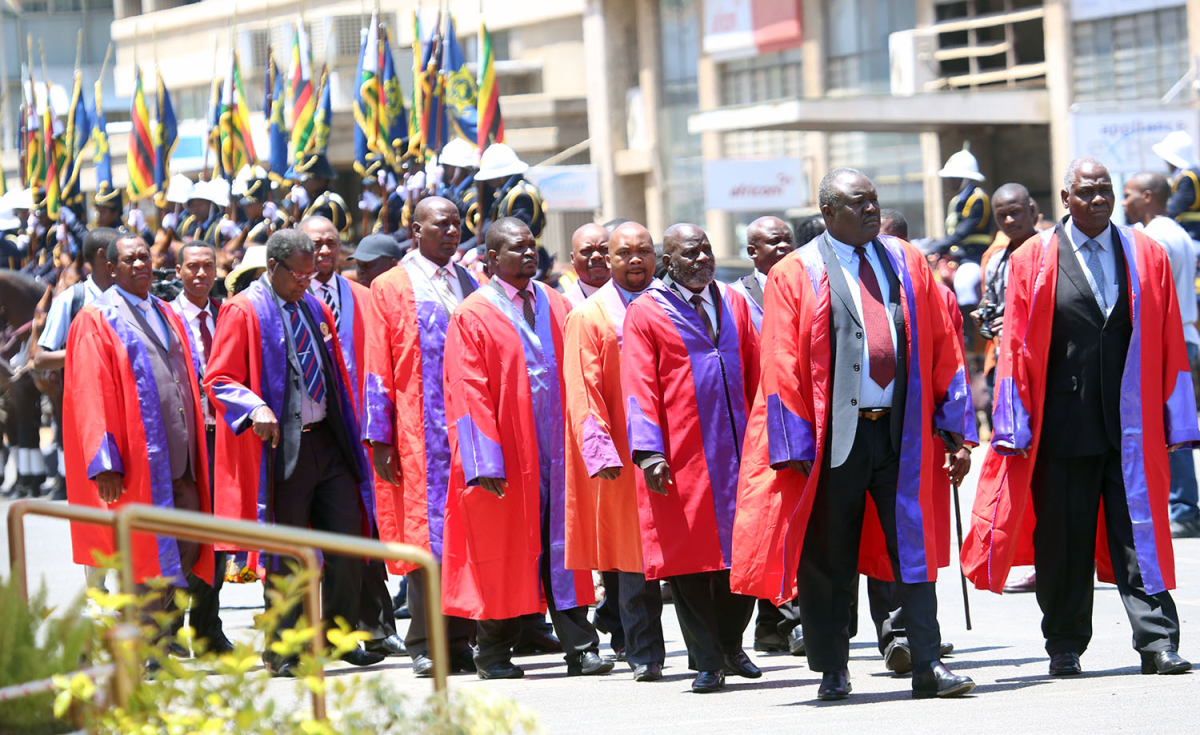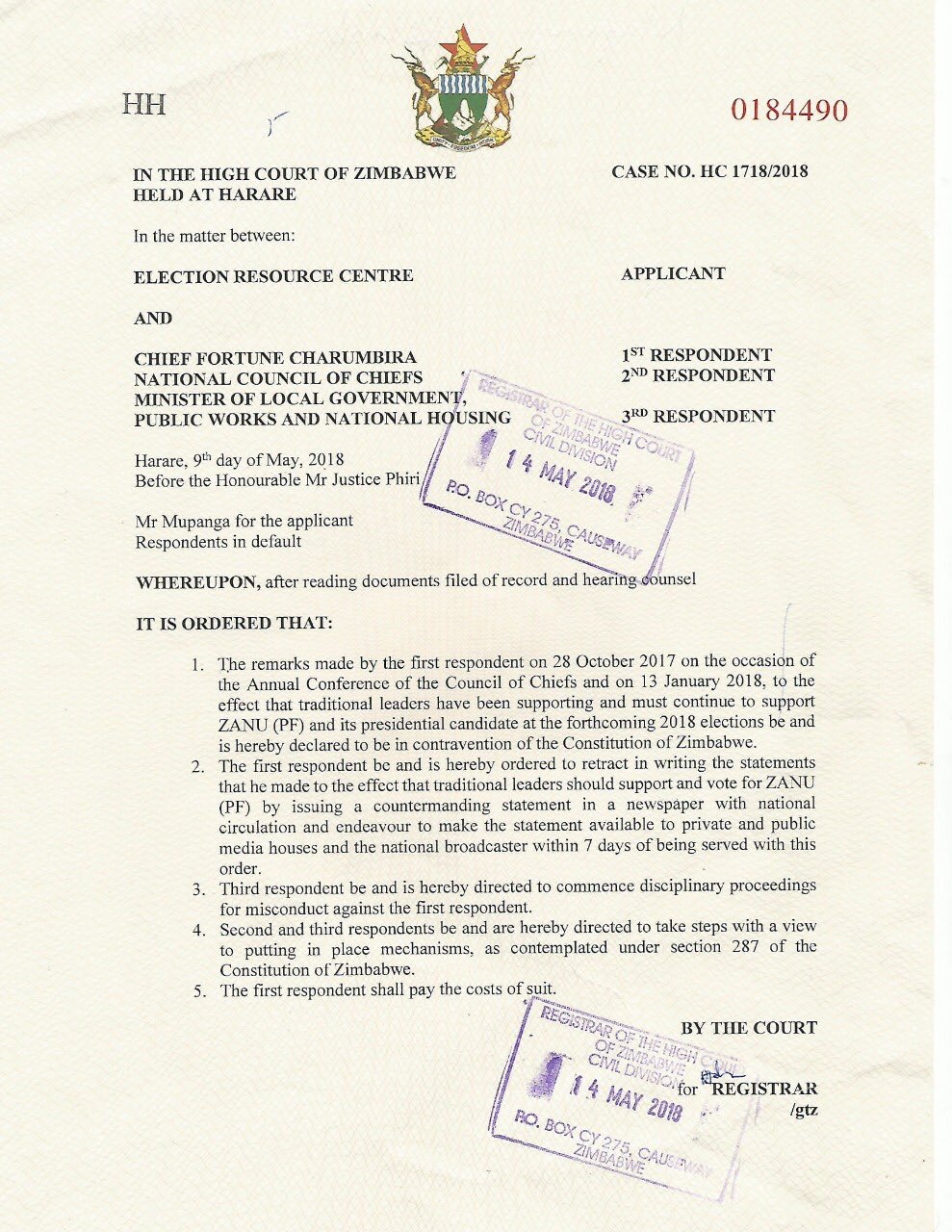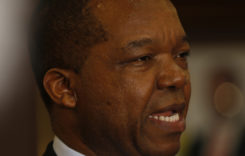The High Court has ordered the President of the Zimbabwe Council of Chiefs, Chief Fortune Charumbira, to publicly withdraw statements he made that traditional leaders would support the governing ZANU-PF party in this year’s elections, saying he was in violation of the constitution.
Charumbira was taken to court by a non-governmental organisation Election Resource Centre (ERC)for saying: “As chiefs, we agreed during the 2014 congress that Comrade (Robert) Mugabe is our candidate for the 2018 elections.We are all united and he is still our candidate.We have been supporting him and we can confirm that winning is guaranteed.”

What did the court say in its ruling?
High Court Judge Clement Phiri ruled: “The remarks made by the first respondent (Charumbira) on October 28, 2017 on the occasion of the annual conference of the Council of Chiefs and on January 13, 2018, to the effect that traditional leaders have been supporting and must continue to support Zanu PF and its presidential candidate in the forthcoming 2018 elections be and is, hereby, declared to be in contravention of the Constitution of Zimbabwe.”

What does the Constitution say?
In Chapter 15 of The Zimbabwe Constitution, in Section 281, sets out the guidelines and principles governing the office of traditional leaders. Traditional leaders are responsible for performing the cultural, customary and traditional functions of a Chief, head person or village head, as the case may be, for his or her community.
Section 281 on principles to be observed by traditional leaders states that:
- Traditional leaders must—
- act in accordance with this Constitution and the laws of Zimbabwe;
- observe the customs pertaining to traditional leadership and exercise their functions for the purposes for which the institution of traditional leadership is recognised by this Constitution; and
- treat all persons within their areas equally and fairly.
2. Traditional leaders must not—
- be members of any political party or in any way participate in partisan politics;
- act in a partisan manner;
- further the interests of any political party or cause; or
- violate the fundamental rights and freedoms of any person.
Conclusion
While Section 58 assures citizens of the right to freedom of assembly and association and Section 67 speaks to the rights of a citizen to join and to participate in the activities of a political party of their choice, it is a right that one forfeits, constitutionally, by virtue of accepting the office of a traditional leader in the country.
Factsheet compiled by Lifaqane Nare, Researcher, ZimFact
Do you want to use our content? Click Here











